Aging embodies a journey marked by beauty and gratitude, evidence of another day lived. Yet, let's acknowledge the reality—some days, the passage of time can feel burdensome. The body undergoes manifold changes, both outwardly and internally, fostering a sense of frustration, particularly as aging increases the risk of various ailments. Fortunately, integrating certain superfoods into your diet can aid in mitigating this process.
The term "superfood" is frequently bandied about, but its precise definition remains elusive. According to the Cleveland Clinic, it encompasses anything rich in diverse nutrients while maintaining a low-calorie count. Although beneficial at any stage of life, certain superfoods stand out for their potential to counteract aging-related effects due to their nutrient profiles.
"Given that our nutritional requirements may shift with age, incorporating certain superfoods into one's diet could potentially support a healthy lifestyle as we grow older," explains Lauren Manaker, MS, RDN, a registered dietitian and author of The First Time Moms Pregnancy Cookbook and Fueling Male Fertility.
Intrigued by this notion, we sought insights from our experts to uncover these specific superfoods. While numerous superfoods can aid in aging gracefully well into your 50s, 60s, 70s, and beyond, our focus remains on the period after reaching 40. This stage presents an opportune moment to cultivate healthy habits, laying a foundation for the decades ahead. Additionally, the body undergoes notable changes in the 40s, including muscle mass reduction, menopause-related hormonal shifts, and alterations in height attributed to bone and muscle dynamics.
Continue reading to discover the superfoods our dietitians recommend integrating into your diet during your 40s to mitigate the aging process.
1) Blueberries
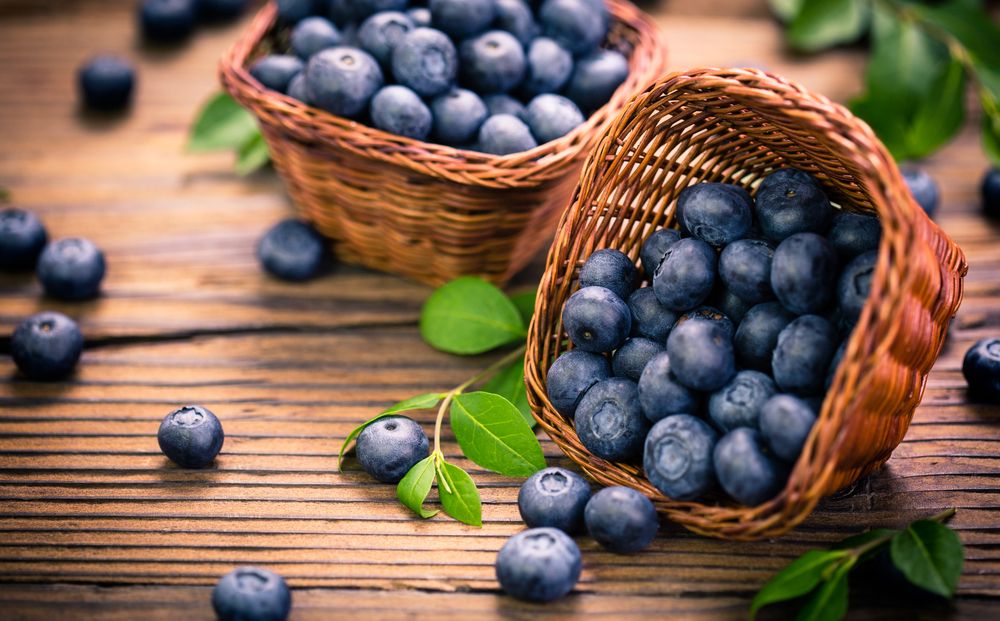
Berries emerge as a standout among the array of healthful foods for aging gracefully, with blueberries taking center stage.
Mary Sabat MS, RDN, LD underscores, "Blueberries boast a wealth of antioxidants known as flavonoids, which effectively combat oxidative stress and inflammation, key factors contributing to aging."
Echoing this sentiment, Lisa Young, PhD, RDN, highlights, "Ingesting blueberries also nurtures brain health and may postpone cognitive decline." Sabat further corroborates, emphasizing that these berries exhibit potential in averting dementia, Alzheimer's disease, and age-related cognitive deterioration "thanks to their potent antioxidant content, particularly flavonoids, which have demonstrated efficacy in enhancing cognitive function and lowering the risk of neurodegenerative ailments."
While you might perceive your 40s as too youthful a phase to prioritize dementia and Alzheimer's prevention, the adoption of a diet rich in blueberries, renowned for their age-defying properties, can serve as a proactive measure.
Moreover, as earlier mentioned, the 40s may herald the onset of muscle strength changes, and research cited in the journal Scientific Reports indicates that blueberries contribute to muscle recovery enhancement and alleviation of post-workout damage and soreness.
2) Strawberries
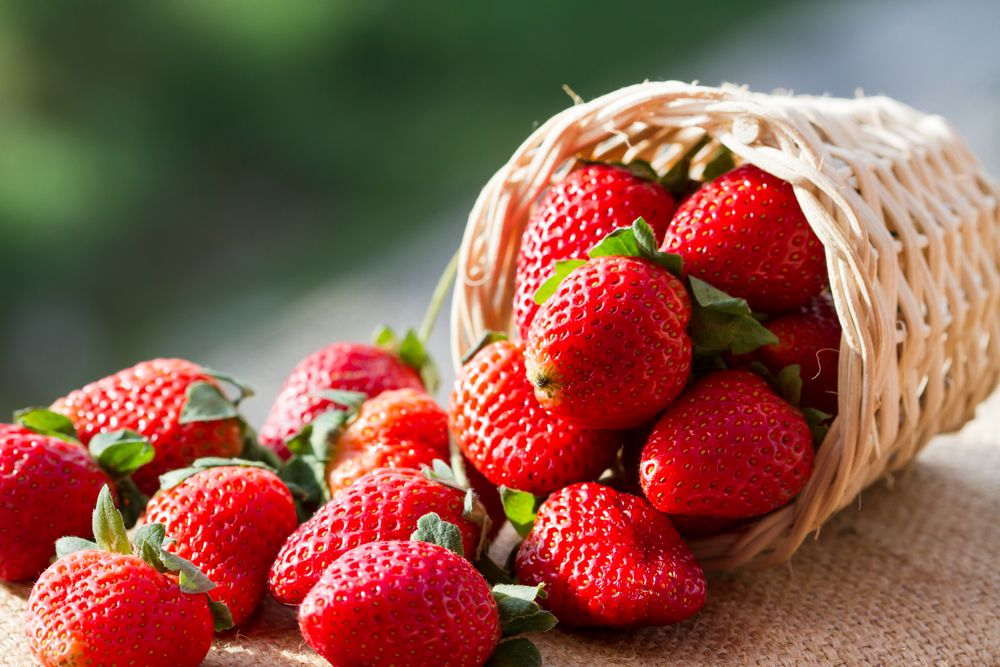
"Strawberries boast a rich content of vitamin C and plant compounds," notes Manaker, underscoring these elements as pivotal contributors to strawberries' superfood status and anti-aging prowess.
Research outlined in the Journal of Alzheimer's Disease indicates that sufficient intake of vitamin C may serve as a protective shield against age-related cognitive decline. Furthermore, the study suggests that obtaining vitamin C from dietary sources within a balanced diet could be more efficacious than relying solely on supplements.
Manaker further emphasizes, "Some evidence indicates that consuming berries more than twice a week could potentially defer cognitive aging by as much as 2.5 years."
Young supplements this insight by suggesting that "berries may also play a role in safeguarding our cells against free-radical damage, thereby lowering the risk of heart disease and cancer."
3) Avocado
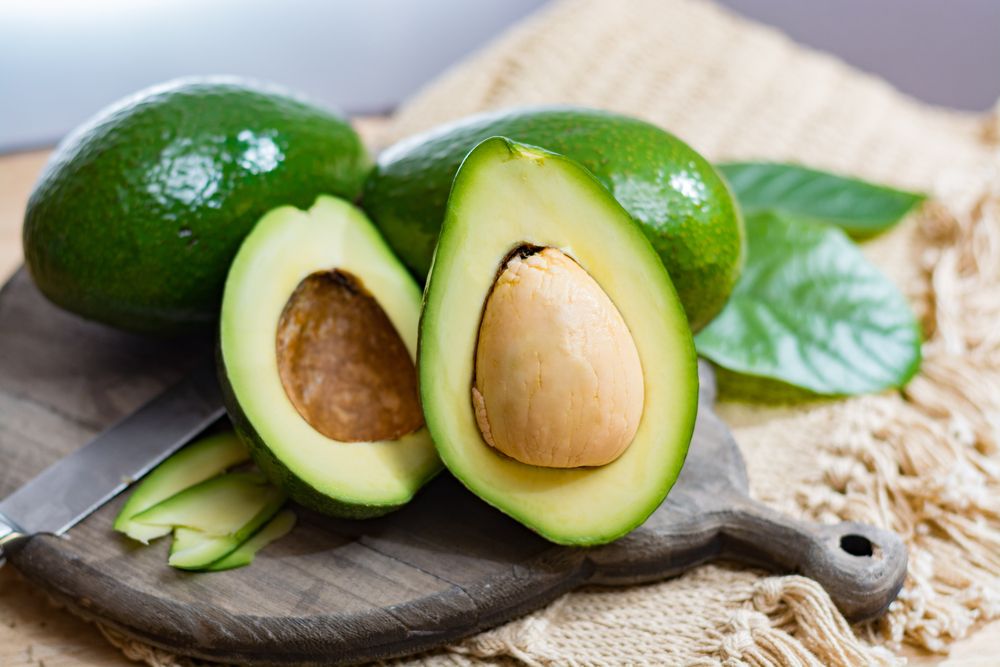
Studies indicate that many individuals start experiencing a decline in skin elasticity and the onset of aging signs, sometimes even in their twenties. This phenomenon stems from the natural decrease in collagen and elastin production as we age, impacting the texture and vitality of our skin. While these changes are inherent and should not instill fear, adopting a diet rich in certain superfoods may offer a means to potentially revitalize skin elasticity.
According to Sabat, avocado stands out as one of the premier superfoods for skin health. "Avocados boast abundant healthy fats, particularly monounsaturated fats, which play a crucial role in nourishing the skin and reducing inflammation, thereby fostering a more youthful appearance," she explains.
Supplementing this, Young highlights that avocados are also rich in vitamin E, which possesses anti-inflammatory properties and promotes healthy aging. "Moreover," she adds, "vitamin E aids in repairing damaged skin and stimulates collagen production, thereby enhancing overall skin health."
4) Almonds
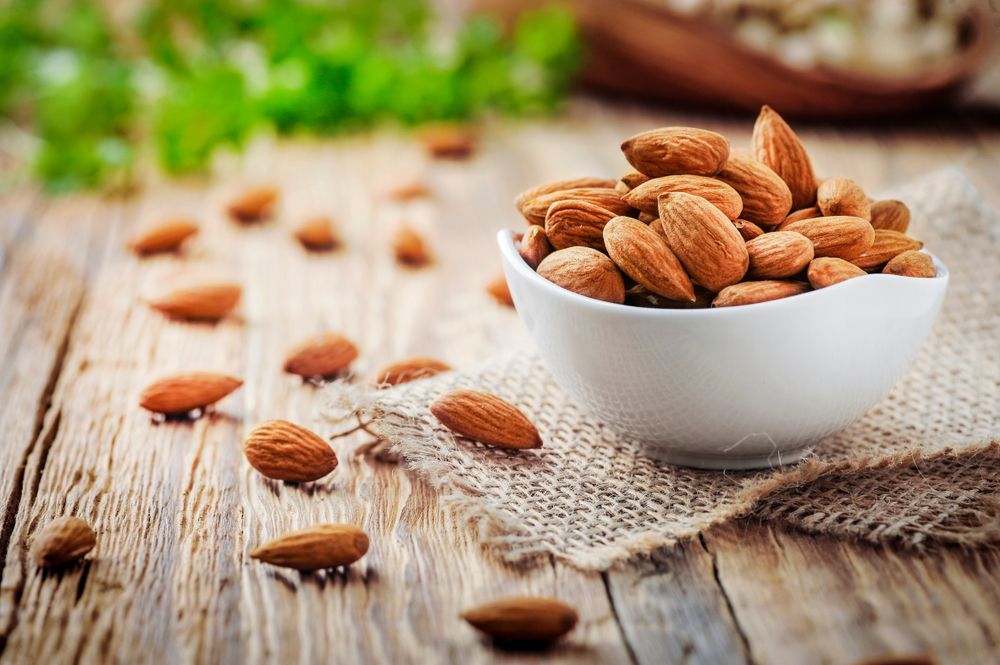
When discussing strategies for maintaining youthful skin, Sabat also underscores almonds as one of the top superfoods for aging gracefully.
"Almonds are abundant in vitamin E, an antioxidant renowned for shielding the skin against UV damage while fostering repair and rejuvenation," she elaborates. Moreover, a study published in Phytotherapy Research revealed that post-menopausal women who incorporated almonds into their daily snack routine experienced, on average, a more substantial reduction in both the size and intensity of wrinkles on their skin.
5) Pomegranate
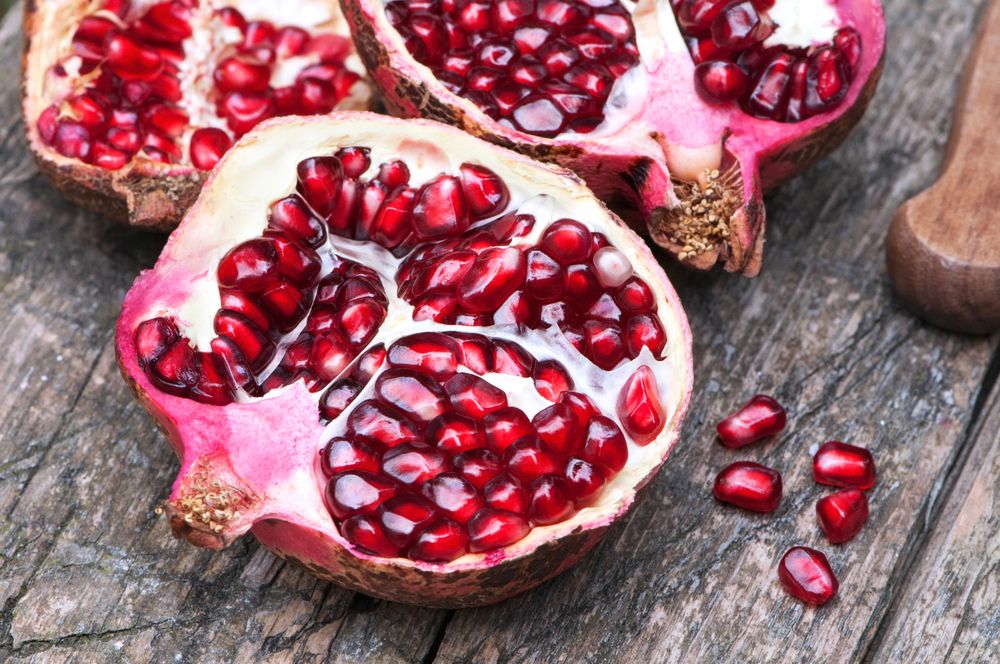
Pomegranates, abundant in antioxidants, have garnered attention for their potential to mitigate risk factors associated with heart disease, enhance brain health and cognition, and preserve skin vitality as one age. Sabat highlights, "This fruit is particularly rich in polyphenol antioxidants, which serve to shield the skin from UV damage, alleviate inflammation, and stimulate collagen production, thereby enhancing skin texture and elasticity."
Whether consuming the pomegranate arils (seeds) or imbibing 100% pomegranate juice, one can reap the remarkable antioxidant benefits for their aging skin, heart, and brain.
6) Turmeric
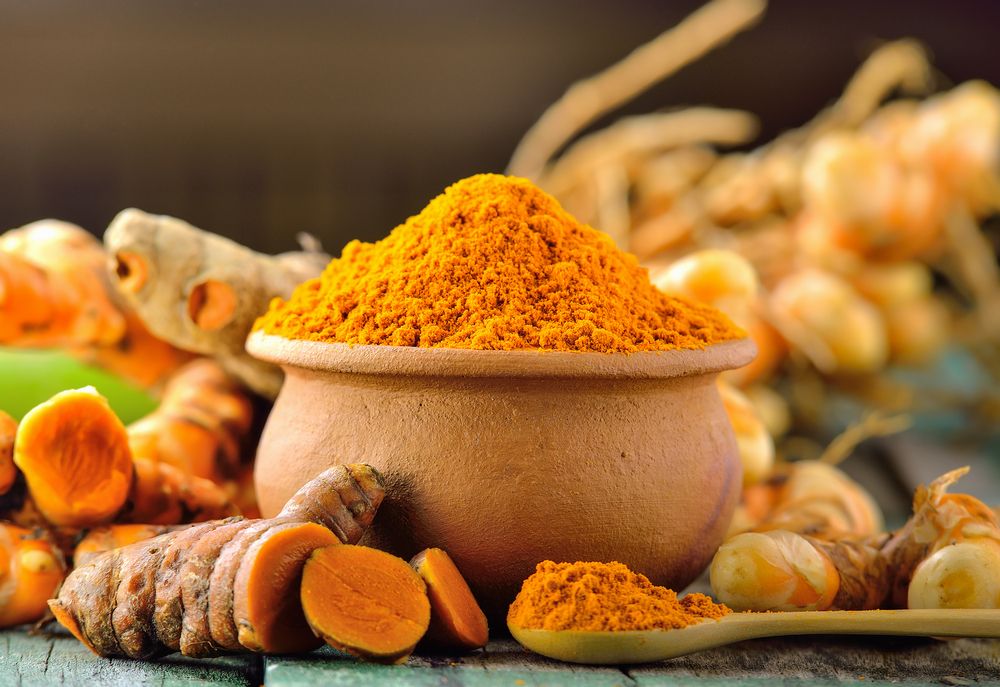
Whether you're incorporating it into a golden latte or seasoning your beloved dishes, turmeric stands out as a superfood associated with anti-aging advantages.
Research cited in the journal Molecules indicates promising outcomes when turmeric is utilized as a supplement by middle-aged men and post-menopausal women, demonstrating significant defense against oxidative stress.
Sabat further explains that turmeric harbors curcumin, a compound renowned for its robust anti-inflammatory and antioxidant qualities. These attributes contribute to shielding against age-related illnesses and fostering general well-being and longevity.
7) Pistachios
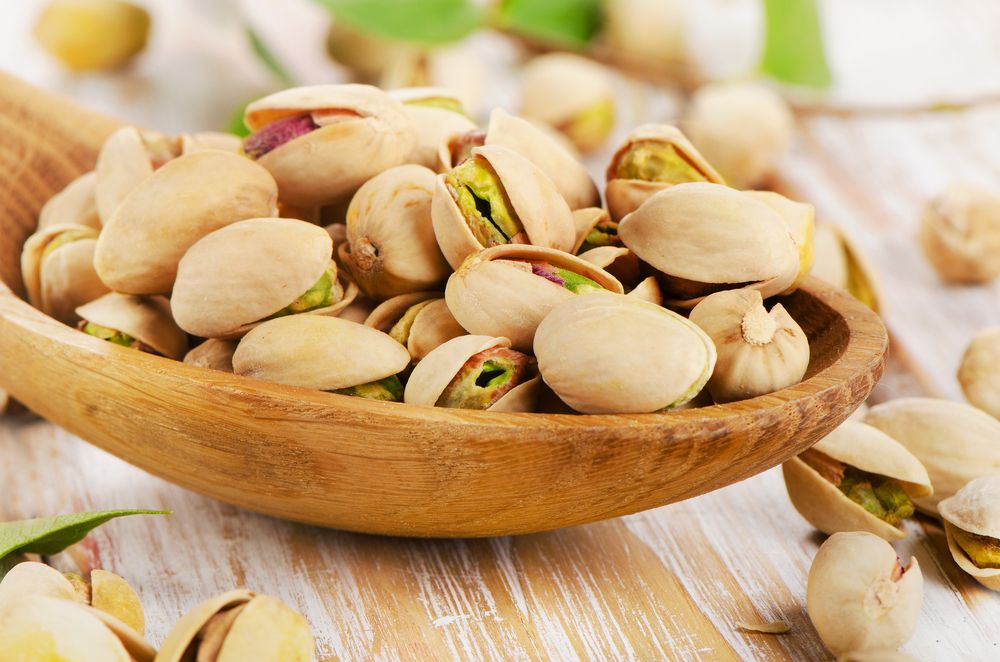
Manaker explains, "Free radicals target healthy cells in the body, leading to inflammation and the accumulation of oxidative stress. This process is believed to accelerate cellular aging and contribute to chronic conditions like heart disease and cancer. Health experts advise consuming antioxidant-rich foods to shield healthy cells from free radical harm."
According to Manaker, pistachios are recognized for their ability to combat free radicals due to their antioxidant properties. "Research conducted by Cornell University, published in the journal Nutrients, revealed that pistachios exhibit a significant antioxidant capacity comparable to popular antioxidant-rich foods such as blueberries and pomegranates."
"Studies indicate that incorporating just a handful of pistachios into a regular diet can positively impact cellular aging and enhance longevity, particularly among individuals with pre-diabetes," Manaker adds. "Additionally, pistachios contain lutein, an antioxidant carotenoid beneficial for maintaining eye health."
8) Salmon
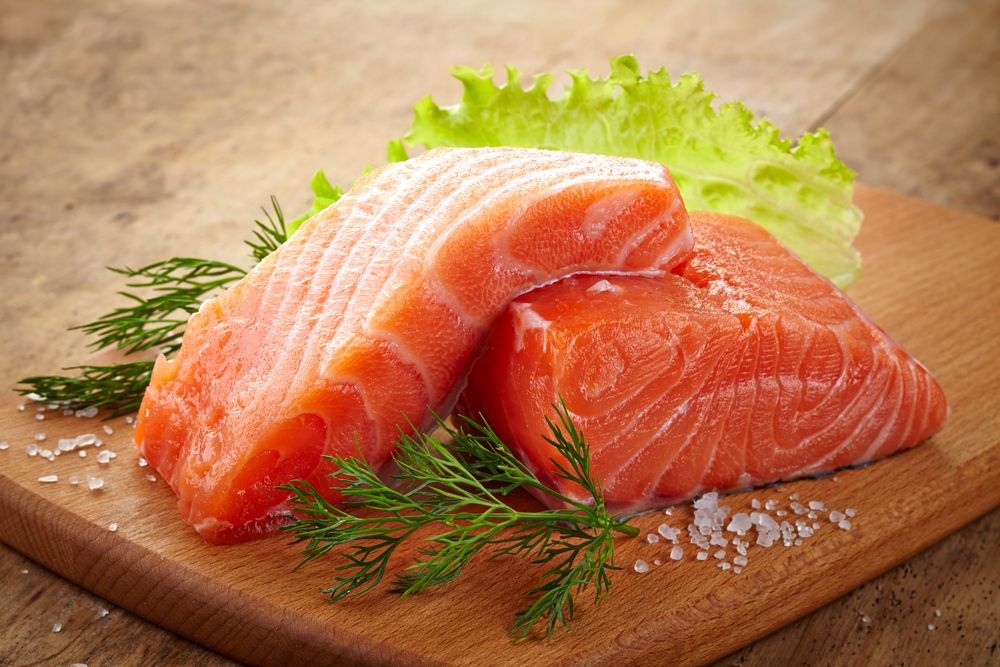
Another remarkable superfood renowned for its anti-aging properties is salmon, along with various other fatty fish varieties. "Salmon stands out as a superb source of lean protein, crucial for preserving muscle mass, particularly vital for older individuals," explains Young. "Moreover, it's abundant in omega-3 fatty acids, known for their role in reducing the risk of heart disease."
A study featured in Neurology uncovered that individuals in their 40s and 50s with elevated levels of omega-3s in their red blood cells exhibited superior cognitive functioning and overall brain structure compared to those with lower omega-3 levels.
9) Cranberries
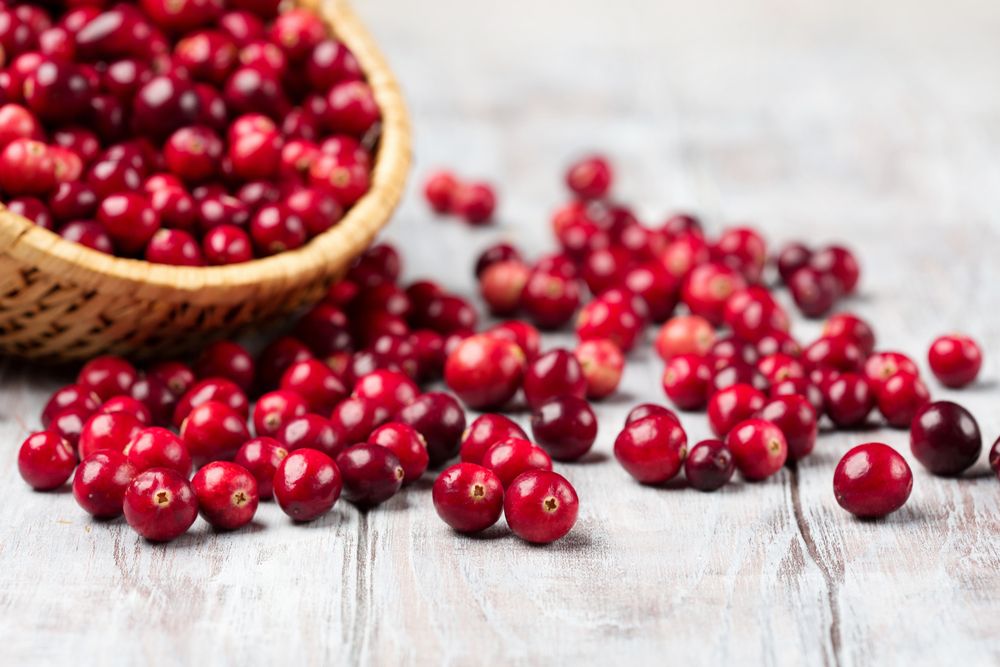
If you're fond of cranberries or cranberry juice, you're in for a treat because this superfood has been discovered to have anti-aging properties.
"Cranberries are rich in plant compounds that have the potential to slow down the aging process, particularly concerning cognitive function," explains Manaker. "Studies indicate that consuming the equivalent of one small cup of cranberries daily for three months may enhance memory performance and neural functioning."
In addition to its cognitive benefits, "Cranberries are also a good source of vitamin C, a nutrient that can help counteract the effects of free radicals on aging skin," notes Manaker.
10) Tomatoes
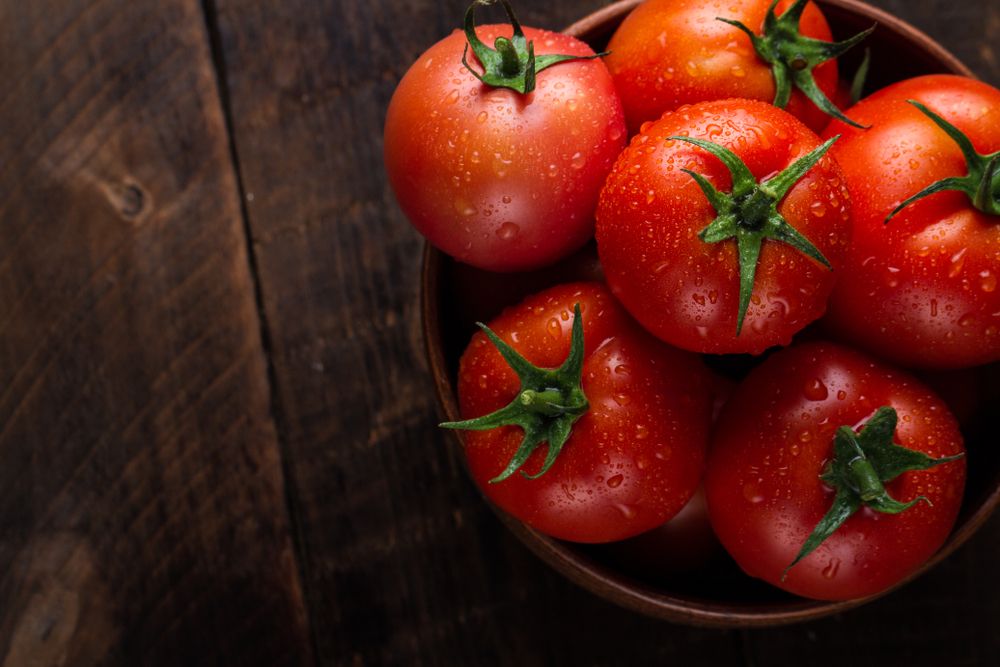
Young emphasizes that tomatoes play a crucial role as a superfood in the fight against aging. "Certain red-hued foods like tomatoes contain lycopene, an antioxidant that combats the free radicals associated with aging," she explains. Lycopene, also present in watermelon and pink grapefruit, is recognized for its diverse health advantages.
In addition to its antioxidant properties, a high intake of lycopene has been linked to lowering cholesterol, enhancing cardiovascular health, reducing the risk of heart disease and stroke, and potentially decreasing the risk of prostate cancer in men. Furthermore, apart from its contributions to age-related ailments, lycopene is known for its ability to mitigate skin photodamage.
11) Dark Leafy Greens
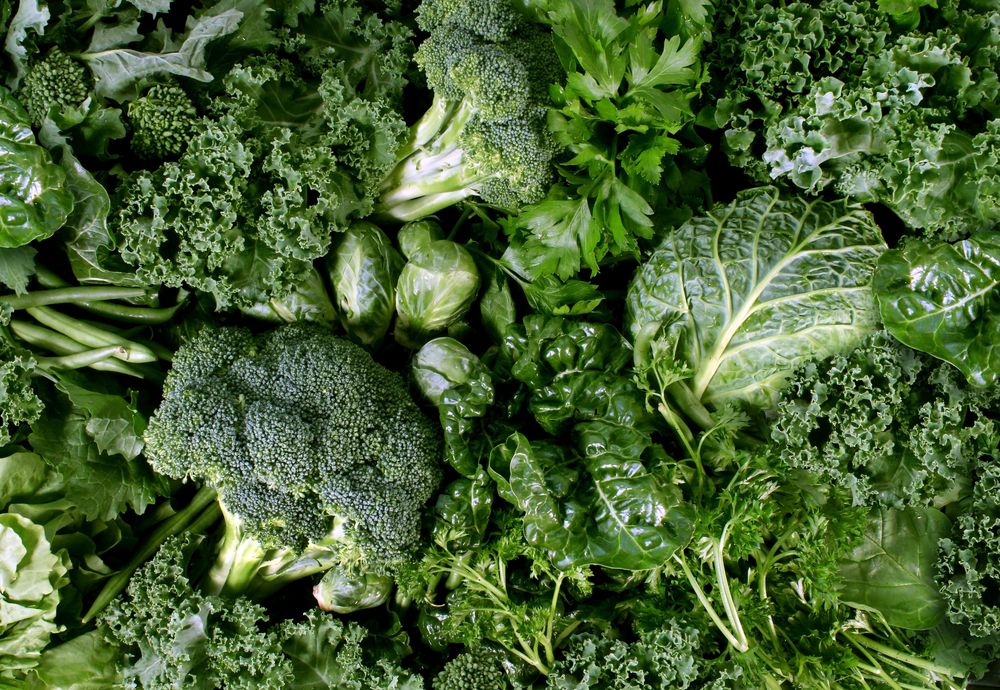
"Young highlights the importance of leafy greens such as kale and spinach, which are abundant in vitamins E and K, potentially warding off memory loss and slowing the aging process of our brains.
Research strongly supports these claims. A study published by the American Academy of Neurology concluded that consuming one serving of leafy greens per day was linked to reduced age-related cognitive decline. This benefit is attributed not only to their vitamin K content but also to their antioxidant plant compounds like lutein and beta-carotene, along with nutrients such as folate and nitrate.
However, the advantages of dark, leafy greens extend beyond cognitive health. According to Young, 'These greens contain carotenoids, which may safeguard the eyes against oxidative damage. Spinach, in particular, is rich in antioxidant vitamins A and C, which contribute to heart protection.'"

